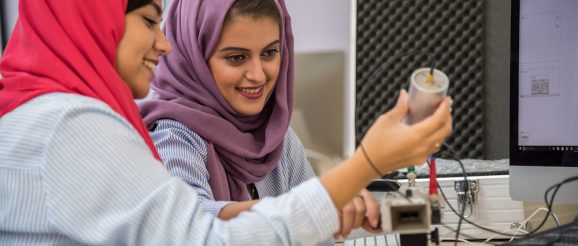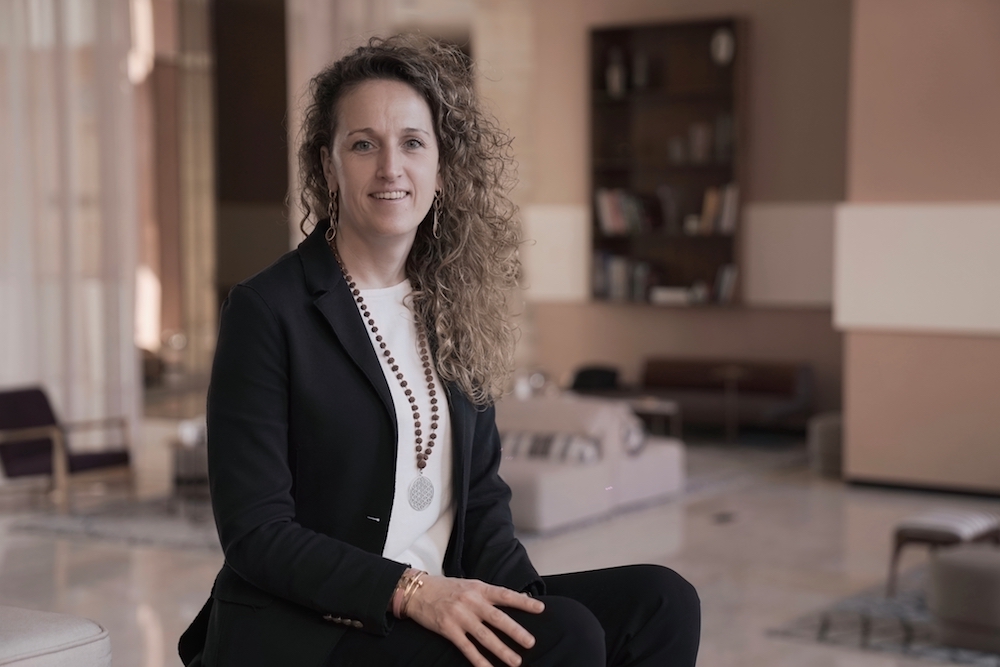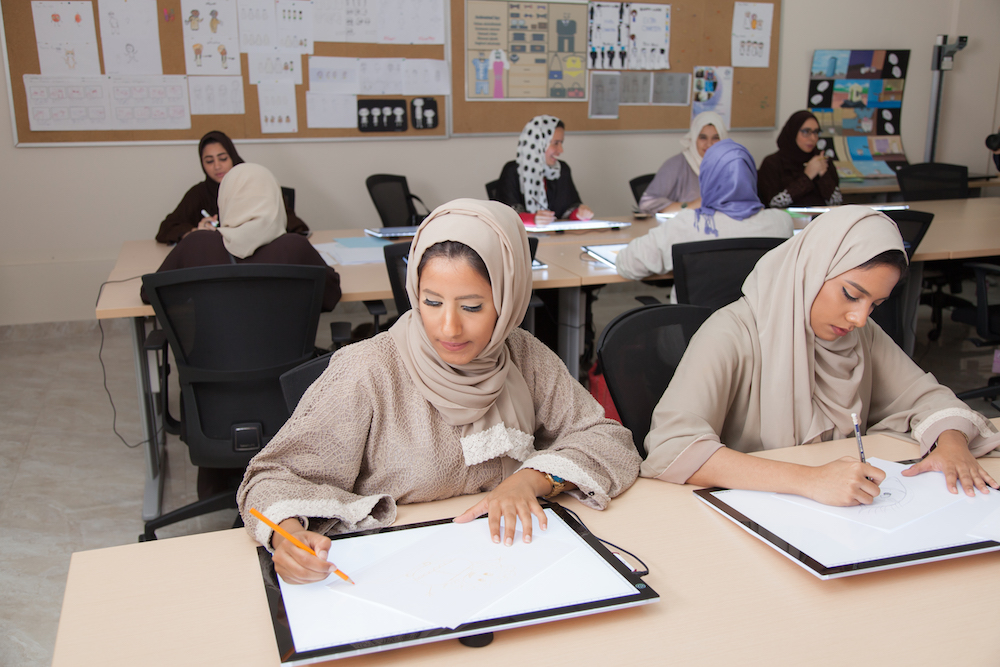How Saudi academia and industry are closing ranks to drive hospitality innovation

DUBAI: As part of their mission to diversify the national economy away from a reliance on oil, authorities in Saudi Arabia are actively encouraging a spirit of entrepreneurism among the youth of the country, particularly those interested in working in the Kingdom’s burgeoning tourism and hospitality sector.
To drive this agenda forward, academic institutions are teaming up with the private sector to organize events and activities that will help to incubate a start-up culture and develop homegrown industries.
One example of this partnership is a new collaboration between Saudi Arabia’s Effat University and Kerten Hospitality that aims to offer young people a chance to take part in mentoring sessions and hackathons, social coding events that bring computer programmers and other developers together to improve upon or build new software systems, while also providing support to students who want to start their own businesses.
“As a lifestyle, ESG, mixed-use operator, we are going to remain focused on our key areas — support for the local community and the young generation of hospitality players — and focus on locality in all its spheres, such as hiring and upskilling local talent, and driving innovation,” Marloes Knippenberg, CEO of Kerten Hospitality, told Arab News. ESG refers to the non-financial environmental, social and governance factors and goals that influence corporate decisions.
“In this regard, we aim to drive initiatives that will further empower entrepreneurship through the launch and introduction of new business opportunities for students to launch, manage, run and grow their businesses,” she added.

“Innovation plays a very big role in this drive as it will help reach the tourism aspirations for the country.”
Saudi Arabia’s Vision 2030 agenda for social reform and economic diversification aims to expand investment in the leisure, hospitality and tourism industries, with the aim of attracting at least 100 million visitors to the Kingdom each year by the end of the decade.
Investment in the nation’s tourism industry is expected to exceed $1 trillion in the next 10 years. To help achieve this, authorities are working to create a favorable investment environment and to encourage local entrepreneurs to take the lead in developing these industries. Kerten Hospitality is offering to share its experience and expertise to help them succeed.
“We are at the start of an ecosystem that will become self-sustainable through a connected network of doers and achievers across multiple industries that work in the field of hospitality,” Knippenberg said.
“We are here to collaborate, adapt our know-how to the local landscape and work jointly with entities and organizations that are headed in the same direction, with the same speed and readiness to move and arrive at 2030 as accelerators of growth rather than laggards of development.”
She believes it is essential to invest time and resources in a younger generation that is motivated, brimming with fresh ideas, and has the most to gain from the long-term growth and prosperity of the Kingdom.

Indeed, according to a report published in April this year by regional digital marketing company Global Media Insight, it is estimated that 70 percent of the Saudi population is under the age of 30. As a result, this demographic is expected to become the engine driving the efforts to achieve the goals of Vision 2030.
“Hospitality sits across the whole tourism sector, and human capital upskilling and a focus on the youth will be of paramount importance,” Knippenberg said.
“This is where we plan to collaborate with Effat, in supporting this drive to get closer to achieving this mission.”
Such partnerships are necessary precisely because the hospitality sector in the Kingdom is in its formative stage. By working with Effat, Knippenberg hopes her company can help to provide young Saudis with the hands-on experience they need to hit the ground running.
“That is why we hope to motivate and stimulate young leaders and minds to contribute to the hospitality space with expertise acquired during their experiences with our global team,” she added.
INNUMBERS
* 70% Proportion of Saudi population estimated to be below age 30.
* 100m+ Target for visitors to KSA each year by the end of the decade.
Sarah Hassan, a 23-year-old graduate student at Effat University, is pursuing a career in logistics and supply-chain management within the hospitality industry.
“The hospitality field in Saudi Arabia is huge because of Makkah and Madinah, and Muslims around the world travel to visit Saudi Arabia, so it’s one of the most robust industries,” she told Arab News. “But now, with Vision 2030 and the country’s will to attract more tourists, it’s evolving.”
In Jeddah, where Hassan grew up, the hospitality industry already plays a significant role in the local economy.
“Jeddah Season just started and I’m seeing a lot of people visiting from around Saudi Arabia, (places) like Riyadh and Abha,” she said.
“The government is allocating all the resources to help facilitate the field. I am now applying for jobs and want to pursue a master’s degree in supply-chain management abroad so I can bring back that knowledge to Saudi Arabia.”
The collaboration between Effat University and Kerten will equip students with problem-solving skills and entrepreneurial know-how as part of an initiative spearheaded by Maria Bou Eid, the general manager of The House Hotel Jeddah City Yard. Young Saudis will also acquire new skills during internships and apprenticeships in Jeddah and it is hoped that their experiences will motivate them to pursue careers in the hospitality sector.

Haifa Jamal Al-Lail, the president of Effat University, said the partnership with Kerten will introduce students to a relatively new jobs market as the country experiences a wide-ranging economic transformation.
“The whole Kingdom of Saudi Arabia is going through different kinds of changes, from A to Z,” she told Arab News.
“In order to equip the students as valuable citizens, they really need to be engaged early on with the market to know exactly what the requirements are and how they can deal with it when they graduate. Hospitality is really the way to go for the Kingdom’s future.
“With all these things happening in art and culture, you will not be welcoming anybody without hospitality.”
A number of other universities in the Kingdom are establishing similar academic-industrial partnerships to help bridge experience gaps.
“It’s about making sure we have the market inside the university and vice versa,” Al-Lail said. “If this kind of reciprocal relationship is not done from the top management, then it will not cascade to the different levels of the institution.
“It helps the different departments and colleges a lot to seek the help of the community and work on it to really show the students what new jobs are available and what skills are needed.”
Al-Lail said she hopes that more companies from a variety of fields, including the tech sector, will form partnerships with higher education institutions in the Kingdom so that students can benefit from the guidance and experience they can provide, and perhaps even grants and scholarships.
“This will make a big difference in order to close the gap early on because they can really invest in the students while they’re studying but they will also have them ready immediately to join their industry after they graduate,” she said.
“That gives them sustainability to close the gap, while providing employment to our students.”
